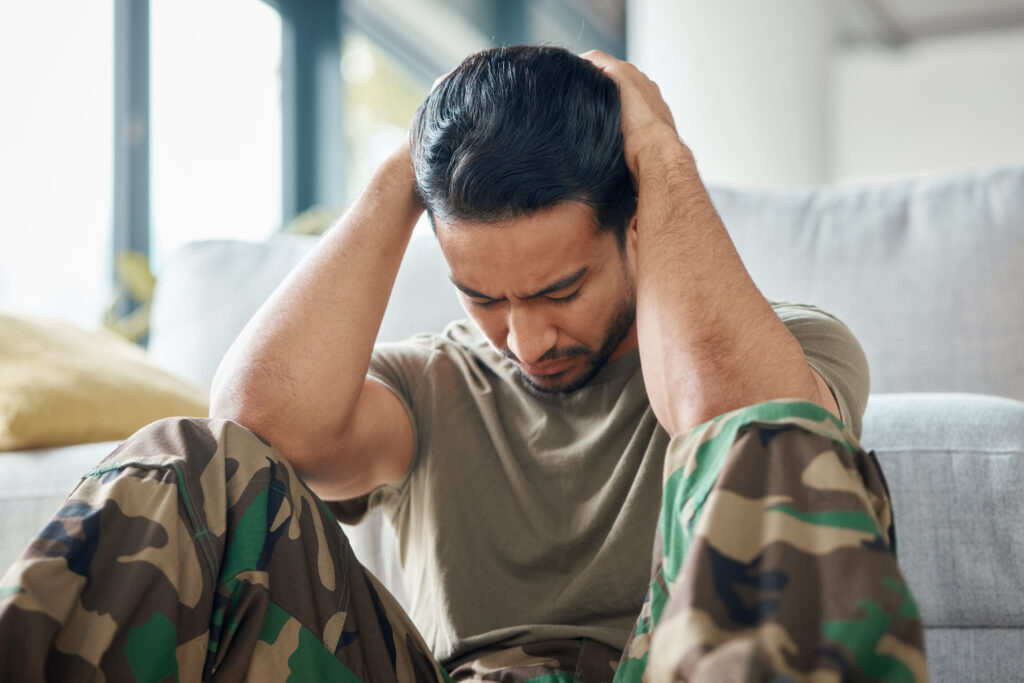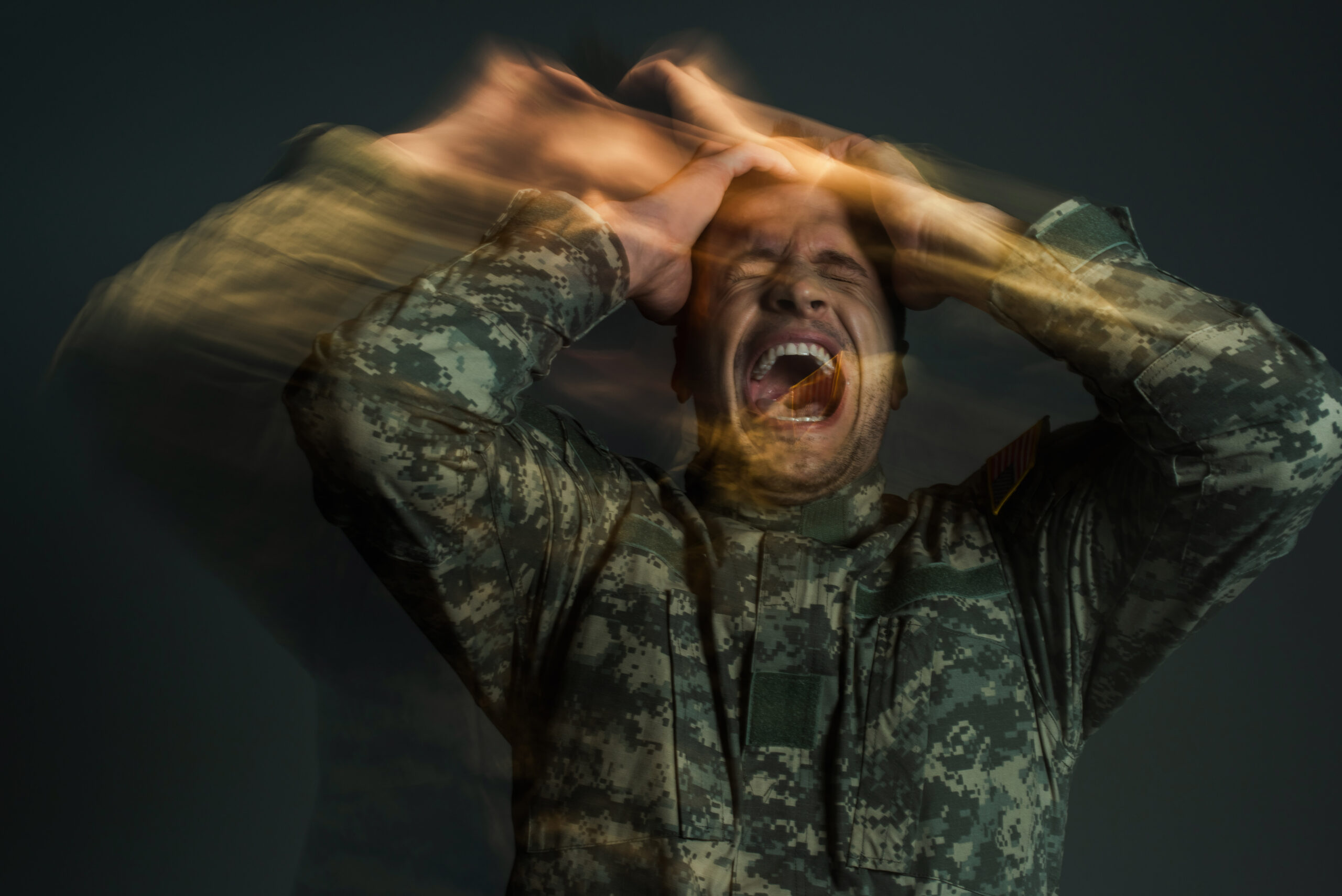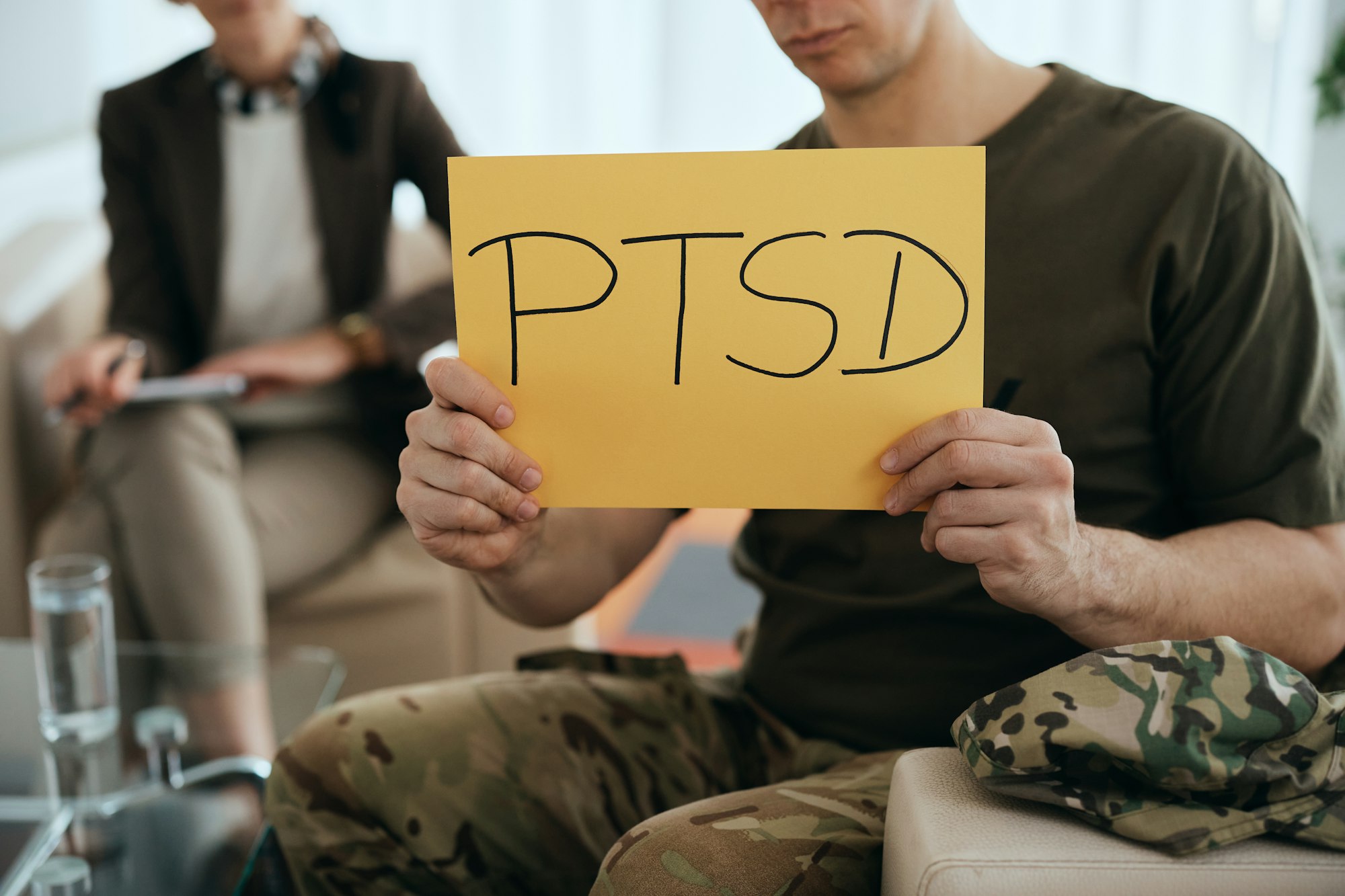Impulsivity is often overlooked but is a critical factor in veterans’ experiences with PTSD and substance use disorders.
Veterans with impulsive tendencies may struggle with aggression and substance misuse, especially when coupled with the stress and emotional turmoil of PTSD.
Recognizing the role of impulsivity can lead to more effective, targeted treatment approaches that foster lasting change.
The Hidden Contributor to Aggression and Substance Use
Impulsivity can manifest in various ways, such as acting without forethought, taking risks, or reacting with heightened emotion.
For veterans, impulsive behaviors often develop as coping mechanisms to manage the stress of PTSD, especially in high-stakes environments. However, research shows that impulsivity is a major predictor of both aggression and substance use in veterans with PTSD (Heinz et al., 2014).
Veterans dealing with trauma may find themselves engaging in risky behaviors, reacting aggressively, or turning to substances to numb their emotional pain. Unfortunately, this cycle of impulsivity and substance use can erode personal relationships, jeopardize recovery, and complicate treatment.
Impulsivity in veterans with PTSD often stems from heightened arousal and an altered stress response due to trauma.
Veterans might react to everyday triggers with fight-or-flight responses that feel automatic, leaving little time for reflection. Without the tools to recognize and manage these impulses, veterans may find themselves making decisions they later regret, such as lashing out in anger or turning to alcohol to escape painful memories.
These impulsive responses can undermine even the most well-intentioned recovery efforts, making impulse control training a crucial element in effective PTSD and SUD treatment.
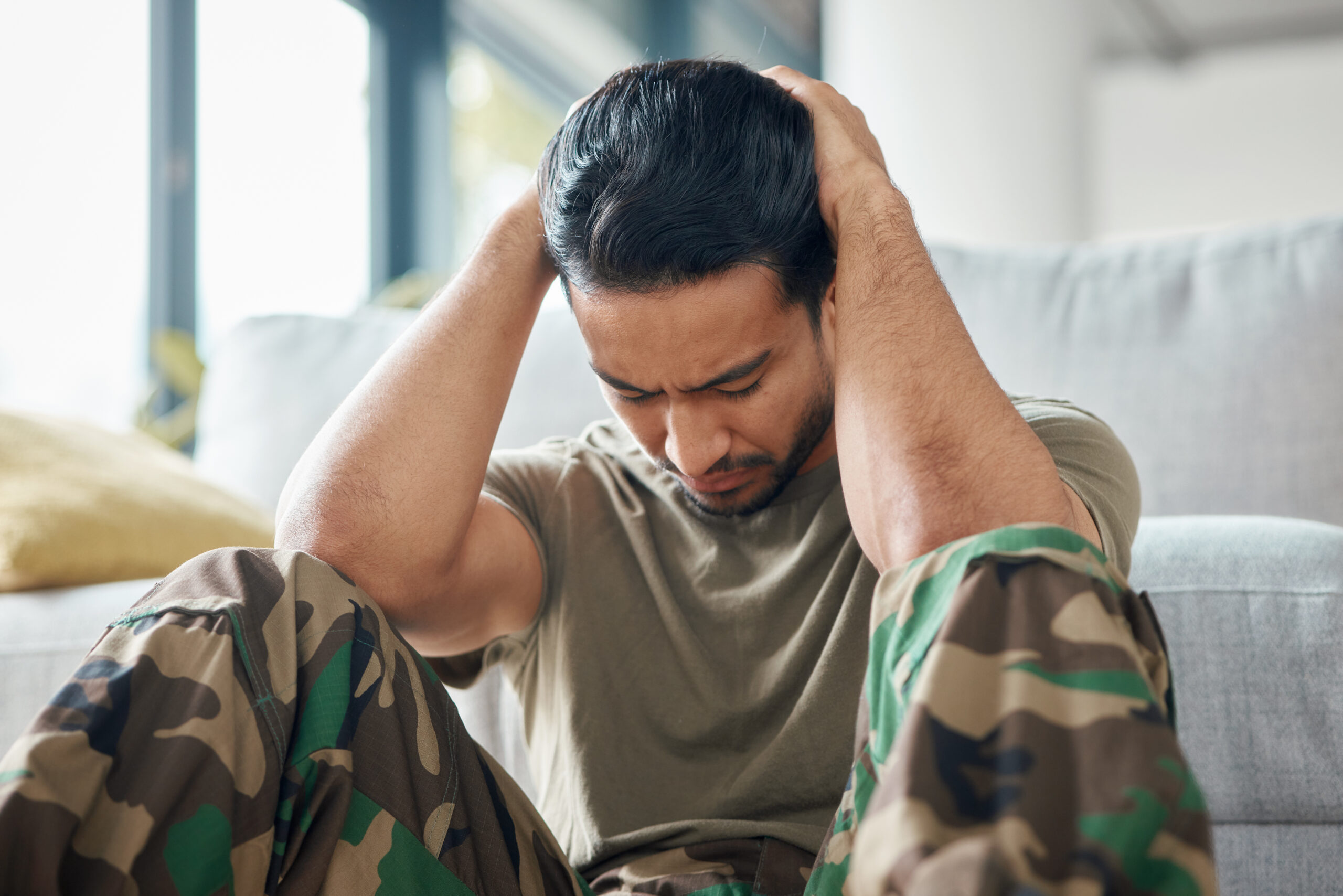
Valor Therapeutics’ Approach to Addressing Impulsivity
Valor Therapeutics provides veterans with holistic, evidence-based therapies that build skills for managing impulsivity, supporting emotional health, and fostering resilience.
By offering multiple therapy options, Valor enables veterans to tackle impulsive tendencies through creative expression, mindful awareness, and intentional reflection. Here’s how Valor’s programs address impulsivity in veteran treatment:
- Art Therapy: Art therapy serves as a powerful outlet for veterans to process emotions and trauma non-verbally. Engaging in creative tasks like painting helps veterans reflect on their impulsive tendencies, which can arise from unprocessed feelings. Art allows them to express complex emotions safely, creating a foundation for self-awareness and improved impulse control.
- Music Therapy: Music therapy supports veterans in exploring and managing impulsive behaviors through rhythm and melody. Group and individual music sessions help veterans identify emotional triggers and manage their responses to stress. Valor’s music therapists encourage veterans to use music as a grounding technique, enhancing emotional regulation and reducing impulsive reactions.
- Soul Recovery: Valor’s soul recovery approach invites veterans to reconnect with their inner selves, helping them rediscover meaning and purpose in life beyond trauma. This process addresses the existential struggles that can drive impulsivity, as veterans often engage in risky behaviors when searching for self-worth or purpose. Valor’s soul recovery sessions offer guidance and community support, helping veterans confront these challenges in constructive ways.
- Yoga and Mindfulness-Based Practices: Yoga and mindfulness practices encourage veterans to connect with their bodies and observe their thoughts without judgment. Through structured breathing exercises, movement, and meditation, veterans learn techniques to calm their minds and bodies. Valor’s mindfulness training teaches veterans to pause, acknowledge impulses, and respond with intentionality rather than reacting automatically.
- Family and Social Support: Valor emphasizes community and family support in each veteran’s healing journey. Peer counseling and family therapy sessions build a network of accountability and empathy, helping veterans develop patience, understanding, and self-restraint. This social reinforcement is essential for sustaining the skills veterans learn in individual therapy and applying them in their daily lives.
Long-Term Implications of Impulse Control in Recovery
Impulse control is foundational for veterans’ success both in treatment and in the transition back to daily life.
Unaddressed impulsivity can impact veterans’ relationships, work, and mental health, making recovery more challenging. Valor Therapeutics provides veterans with structured settings to practice and reinforce these impulse control skills, promoting confidence and resilience over time.
For veterans, applying impulse control techniques outside of therapy involves practicing mindfulness in real-life settings, like managing family responsibilities or navigating social gatherings.
Valor’s emphasis on mindfulness and art-based practices helps veterans maintain calm and clarity in high-stress moments. By reinforcing these skills across different contexts, Valor prepares veterans to approach impulsive tendencies with strategies that are grounded in self-reflection and self-compassion.
Peer Support and Community Building for Improved Impulse Management
Valor Therapeutics values the role of peer support in each veteran’s recovery.
Veterans benefit from group sessions where they share experiences, discuss challenges, and learn from others’ strategies for handling impulsive behaviors. This environment fosters mutual respect and reduces feelings of isolation, making veterans feel part of a supportive community.
Valor also integrates community-based activities like outdoor retreats and collaborative workshops, where veterans practice impulse control in group settings. These activities provide social skills training and stress management techniques, building veterans’ confidence in navigating complex interpersonal dynamics.
Veterans find strength in these shared experiences, developing bonds that motivate them to remain committed to recovery and maintain control over their impulses.
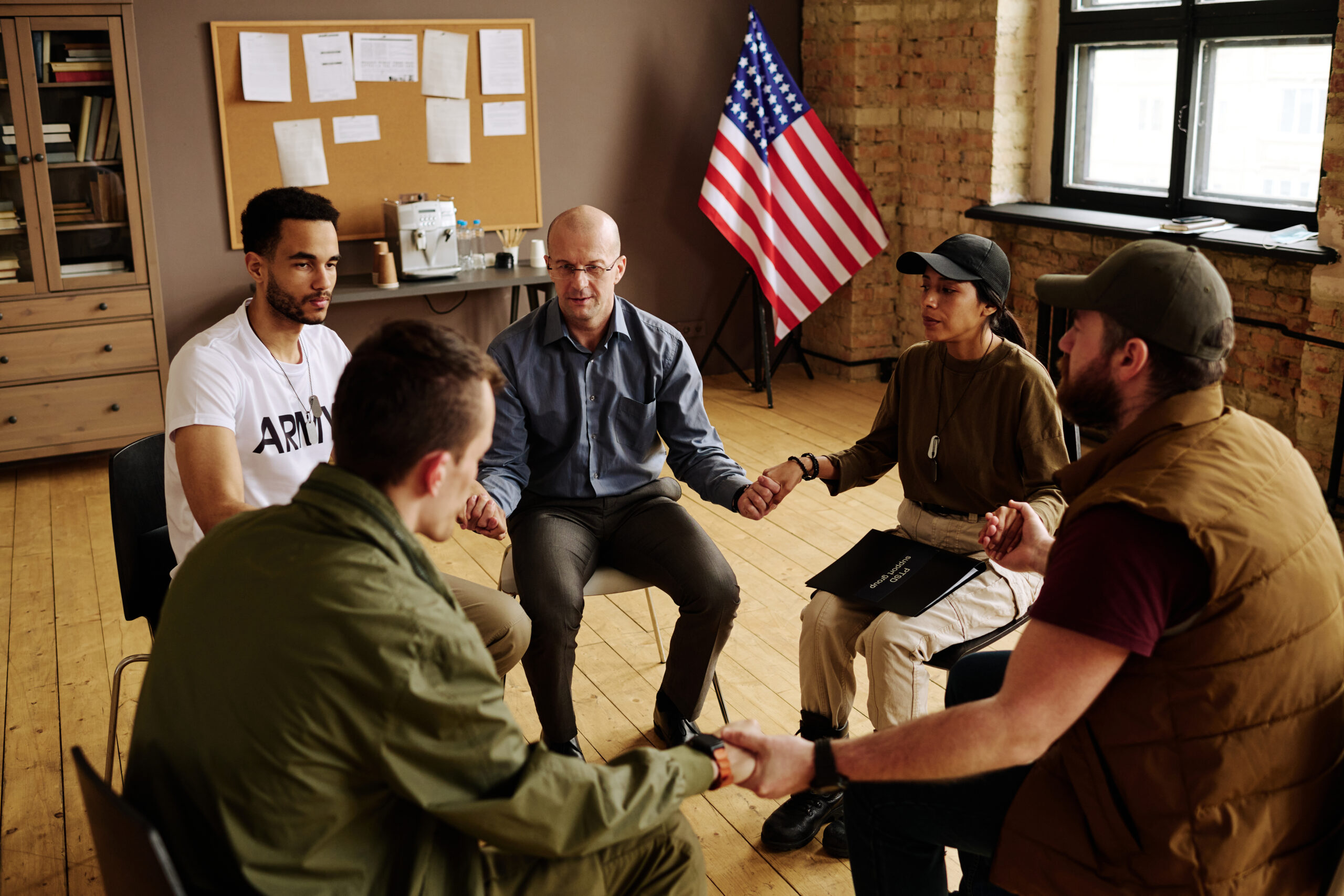
Why Addressing Impulsivity is Essential for Veterans’ Success
For veterans recovering from PTSD and SUD, managing impulsivity is crucial for sustainable recovery.
Impulse control has a direct impact on a veteran’s ability to maintain sobriety, nurture relationships, and build a stable post-service life. Valor Therapeutics’ approach to impulsivity equips veterans with tools to regain self-control, overcome past behaviors, and focus on meaningful future goals.
By focusing on impulse control, Valor Therapeutics provides veterans with a stable foundation for their lives outside treatment.
Veterans leave Valor with skills to manage stress, make thoughtful choices, and stay grounded in high-stakes moments. This empowerment is essential for fostering independence, personal growth, and a renewed sense of purpose.
Valor Therapeutics’ unique blend of therapies—from art and music to yoga and soul recovery—ensures that veterans can explore and resolve the roots of their impulsivity.
Through this holistic approach, Valor supports veterans in building lives filled with resilience, connection, and lasting peace.
References
Heinz, A. J., Makin-Byrd, K., Blonigen, D. M., Reilly, P., & Timko, C. (2014). Aggressive behavior among military veterans in substance use disorder treatment: The roles of posttraumatic stress and impulsivity. Addictive Behaviors, 39(3), 536–543. https://doi.org/10.1016/j.addbeh.2013.10.016

Melissa Henderson
Melissa Henderson is a dual-major student in Organizational Leadership and Psychology at Wright State University. With experience in nonprofit support and advocacy for veterans, she’s dedicated to creating positive, inclusive environments that empower individuals and promote well-being. Driven by her values of resilience and collaboration, Melissa is committed to leadership that makes a lasting impact on both people and systems.

